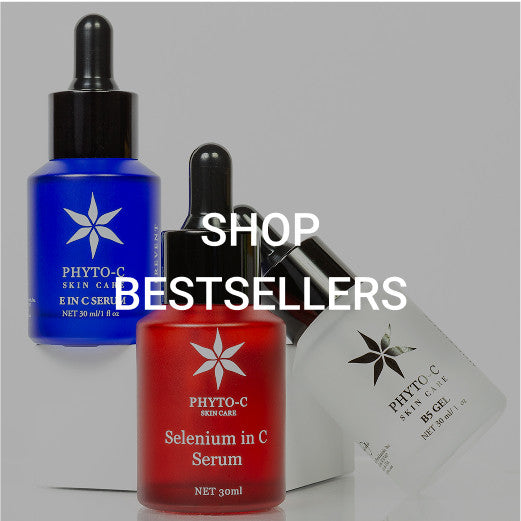Vitamin C serum is known for giving a better boost to dull-looking skin. However, sensitive skin usually means that people should use vitamin C carefully. Not all insect repellents leave your skin stinging or irritated; some are much gentler. Therefore, knowing all types of vitamin C and what makes the serum safe for the skin is important. The right blend of ingredients with a perfect form of vitamin C serum for sensitive skin will not cause any irritation. Let us explore more about the ingredients and the types that make such a serum a superior one to the rest.
Learn More about Vitamin C Serum for Sensitive Skin
Vitamin C serums differ in how they are made, and every type affects the skin differently. A few serums are powerfully created but might irritate delicate skin, but some are milder and less likely to irritate. The kind of vitamin C serum for sensitive skin online that you see and apply can decide how fast it acts, how far it gets into your skin, and what effect it has on your face. With sensitive skincare, the aim is to select a product that is helpful but doesn’t cause irritation. These forms of vitamin C are often suggestions for people with delicate skin.
1. The superior form is called SAP
Sodium Ascorbyl Phosphate is equally potent as L-Ascorbic Acid, SAP is a good alternative for skin that doesn’t handle L-Ascorbic Acid well. Excluding milk and eggs, whey protein gives antioxidant protection, improves skin radiance, and controls bacteria that can cause acne—which makes it a good option for anyone with acne or sensitive skin.
Often, this way of filming is known for building up events slowly but steadily. The results may come more gradually, but the process strengthens your skin gently without stressing it. SAP is typically gentle on sensitive skin, so it’s often recommended as a daily dose of vitamin C for those with reactive skin.
2. The use of magnesium ascorbyl phosphate (MAP)
This water-soluble form is gentle on sensitive skin. It helps in stimulating collagen while eliminating issues of hyperpigmentation and acne rosacea. It also protects the skin against harmful radicals while being gentle to the skin.
If your skin is sensitive and bothersome, as well as dry and tight, MAP can be helpful. It soothes because it also gives the skin moisture. Although not as powerful as some drugs, transcutaneous electrical nerve stimulation (TENS) still has useful effects.
3. Ascorbyl Glucoside
This form of vitamin C is sustained and kind to the skin, yet it works when applied. The solution is combined with glucose so it does not irritate your skin. It makes your skin look brighter, improves aging areas, and encourages collagen with gentle ingredients.
Its stability means ascorbyl glucoside commonly appears in serums suitable for skin of any type, including sensitive skin. Because it doesn’t easily go bad, it is more appealing to many. Those with sensitive skin are grateful for how well this good vitamin C serum for sensitive skin is absorbed and provides a lot of comfort.
Different Ingredients of good vitamin C Serum for Sensitive Skin
Aside from vitamin C, what the other components of the serum are makes a big difference to how sensitive skin reacts. Being sensitive to calming, hydrating, and antioxidant ingredients can help manage dry skin. Check out the main ingredient categories and what they offer when used in combination with vitamin C.
1. Options of Aloe Vera and Chamomile Extract
Aloe vera usually helps soothe irritated skin and reduce redness. When combined with vitamin C, it is less likely to cause some users’ stinging. The serum keeps your skin moist and helps reduce swelling, so it feels better on your sensitive skin.
Various beneficial substances found in chamomile extract help to fight toxic damage and swelling. The main purpose is to make unpleasant skin reactions heal faster and better. Cica, which is Centella Asiatica, soothes irritated skin and increases its ability to protect the skin. Due to these components, sensitive skin is able to use vitamin C without facing any problems.
2. Ingredients like hyaluronic acid and panthenol
Keeping the skin free from sagging and drying is done by hyaluronic acid, which holds in moisture. When you add vitamin C to your routine, sodium ascorbate phosphate will work by fighting dryness and making your skin feel less taut. While it helps your body take in nutrients, it won’t trigger anything uncomfortable.
Thanks to its ability to draw water, glycerin also keeps your skin soft. Panthenol, or pro-vitamin B5, is good not only for hydration but also for the healing of your skin. They soften the skin and help keep dryness or peeling away, problems sometimes linked with using vitamin C.
3. Antioxidants and Barrier Support: Vitamin E, Ferulic Acid, Niacinamide
Vitamin E protects the skin from damage and adds moisture to it. Studies reveal it makes vitamin C a more powerful antioxidant and helps lower the chance of skin irritation.
If you take ferulic acid with vitamin C, vitamin C retains its strength and efficacy for a longer period. It’s known for its benefits, but including small amounts helps sensitive skin make the most of vitamin C. Niacinamide supports sensitive skin by helping to stop irritation and dark spots, and it strengthens the skin’s barrier function.
4. Use Jojoba and Rosehip Oil for better skin treatment
Since it behaves like natural oils on our skin, adding squalane keeps our skin moisturized and unblocks our pores. It makes the vitamin C serum spread easily and stops your skin from getting dry.
Many vitamin C serums contain jojoba oil and rosehip oil because these ingredients ease skin irritation and improve health. Rosehip is special because it provides vitamin A naturally, which gently treats damaged skin. Thanks to these oils, vitamin C becomes more gentle for people who tend to have sensitive skin.
Why Sensitive Skin Needs the Right Vitamin C Serum?
The wrong form of vitamin C serum for sensitive combination skin can trigger burning, making your skin peel and resulting in permanent skin issues. Acidic forms like L-ascorbic acid might upset the skin’s natural barrier if you do not also include soothing or hydrating ingredients. Eventually, this can cause your skin to become more sensitive, and acne may develop.
Sensitive skin users should use forms of vitamin C that are easy on the complexion, such as MAP, SAP, or ascorbyl glucoside, plus soothing ingredients such as aloe, niacinamide, or hyaluronic acid. Proper use of vitamin C can help your skin become stronger, even its tone, and guard against damage from pollution, all without issues. Sensitive skin should use vitamin C as well, as long as it’s delivered in a way that won’t upset the skin.
How to Add a Vitamin C Serum to a Sensitive Skin Routine?
Always use vitamin C carefully and slowly if your skin is sensitive. Start by applying the serum just every other day, after washing, and before applying moisturizer in the morning. Try using low concentrations to check how your skin changes during the first few weeks. Be sure to give a small patch test before use by spreading a small amount behind your ear or on your wrist and looking for a reaction after 24 hours.
It’s best to wait a day between using hyaluronic serum and strong exfoliators or retinoids. After cleansing with the serum, add a moisturizer and apply sunscreen. It holds in moisture and leaves the skin barrier safer. After your skin gets used to it, you can do more sessions or make them stronger. Better outcomes will come from regular, mild treatment than from using a strong product only once.
The right way to store Vitamin C Serum for Sensitive Skin
Always keep your vitamin C serum in a space where there is little sun and it’s not warm. The best bottles for protecting your serums from light are those that are raspberry or amber-colored. Always shut the bottle firmly after using it to keep oxygen away.
If the serum turns orange or brown or smells different from normal, it has oxidized, and you shouldn’t use it. Putting the serum in a skincare fridge is a good way to preserve its power. To benefit your sensitive skin, make sure your serum is fresh and stored as directed. The best serum effect comes from using one that has not been stored for long.
Conclusion
It is not always easy to select a vitamin C skin care when your skin is sensitive. The right ingredients combined with the proper form of vitamin C can keep your skin from getting irritated and looking healthier. Selecting SAP, MAP, or Ascorbyl Glucoside forms and using soothing, hydrating, and repairing ingredients alongside them makes vitamin C better for your skin. Irrespective of your skin’s sensitivity, the balanced formula means it is safe to use this antioxidant. Using Phyto-C helps you benefit from vitamin C and is suitable for helping all forms of skin.


 My Account
My Account Our Story
Our Story Shipping Information
Shipping Information Returns
Returns FAQ
FAQ VIP Rewards
VIP Rewards Contact Us
Contact Us

 Next Post
Next Post